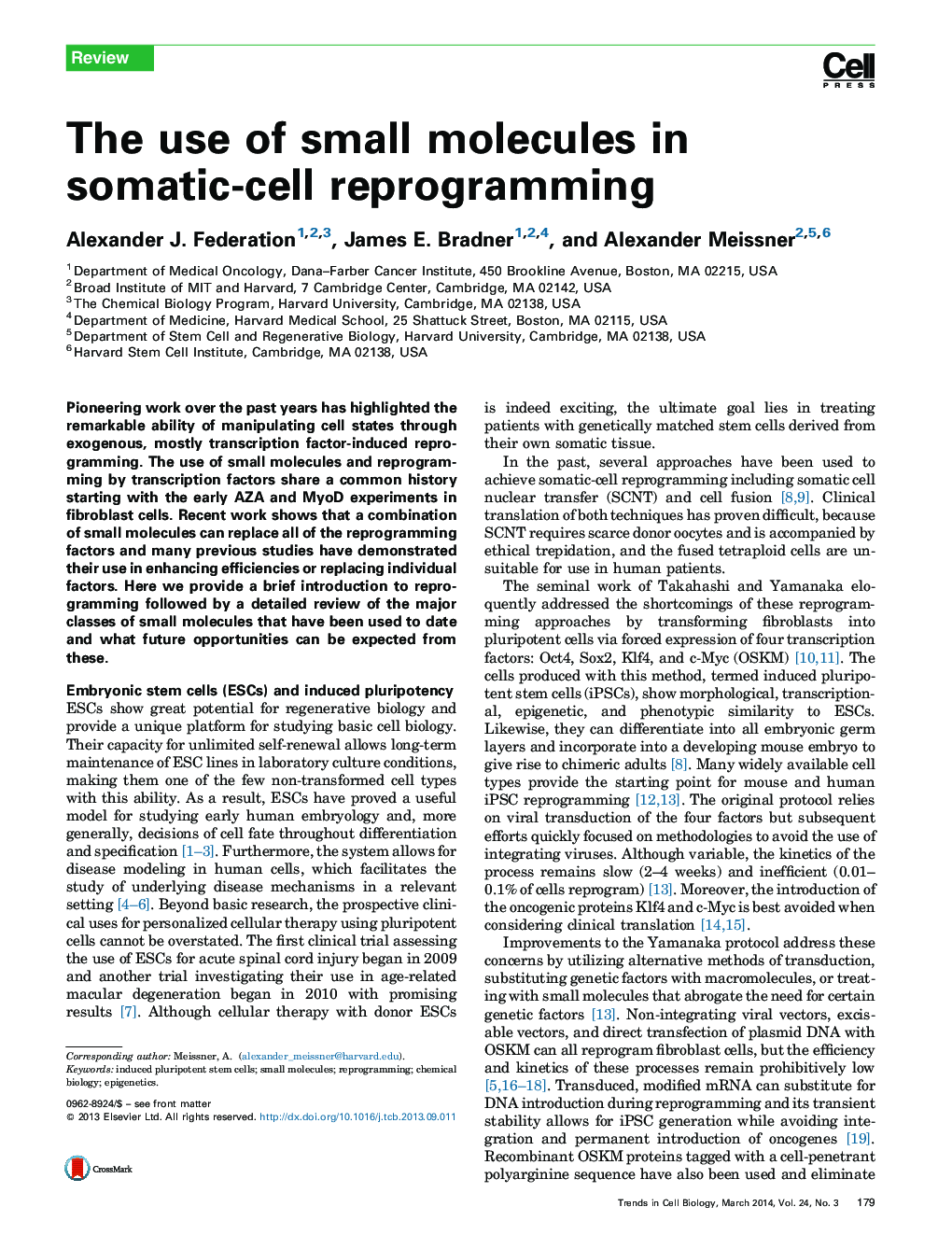| Article ID | Journal | Published Year | Pages | File Type |
|---|---|---|---|---|
| 2204429 | Trends in Cell Biology | 2014 | 9 Pages |
•Reprogramming of somatic cells toward many alternative cell types is a major advance in regenerative cell biology.•Small molecules that target epigenetic modifiers or signaling pathways can enhance reprogramming efficiencies and replace individual factors.
Pioneering work over the past years has highlighted the remarkable ability of manipulating cell states through exogenous, mostly transcription factor-induced reprogramming. The use of small molecules and reprogramming by transcription factors share a common history starting with the early AZA and MyoD experiments in fibroblast cells. Recent work shows that a combination of small molecules can replace all of the reprogramming factors and many previous studies have demonstrated their use in enhancing efficiencies or replacing individual factors. Here we provide a brief introduction to reprogramming followed by a detailed review of the major classes of small molecules that have been used to date and what future opportunities can be expected from these.
